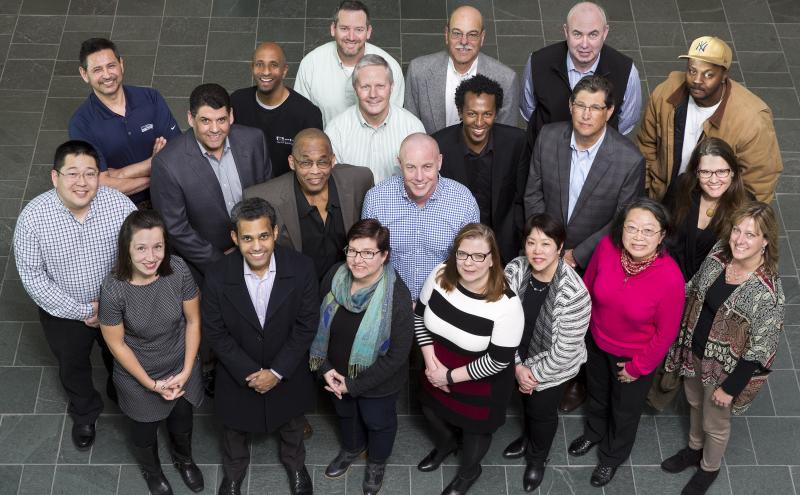To celebrate National Small Business Week, the Port of Seattle celebrates the essential contributions of small business owners and entrepreneurs.
Many small businesses have struggled to stay afloat as the pandemic forced people to change habits and lifestyles to protect their health. During this time, Tanya Jimale, President and CEO of Jimale Technical Services (JTS), has managed to stay resilient and keep her 28-year-old business thriving. Jimale wants to use her experience to help other small business owners, so she shares her tips and tricks for navigating tough times through the Port of Seattle’s Diversity in Contracting program.
Seattle-based JTS specializes in construction management to provide support for project managers and project controls to assure that clients reach all important milestones for their projects. Jimale and her team ensure clients’ projects remain compliant with minimal risk through project completion.
"We make our clients happy so they can sleep at night and not worry about their project. We are the keepers of the construction story," Jimale said.
Early in her career, Jimale worked for several companies as a civil engineer, and discovered she had a flair for organization. This led her to start her own company.
"JTS is the third eye that ensures the success of each project. We have received a lot of kudos for our document control and developing document control systems."
Strategies to thrive
Over the years, Jimale has attended and spoken at several PortGen workshops, which provide an opportunity for small businesses to meet Port of Seattle representatives; learn about programs, initiatives, and contracting goals; and connect to resources. The Port has long been a supporter of small business growth and workforce development, and has prioritized contracts with these firms. The Diversity in Contracting program offers resources and workshops to help business owners learn how to do business with the Port.
Building a business is like an oyster with sand in its shell.
"There are tools and methods and stories that you can tell small businesses to help them enhance their position and grow. I give business owners strategies to thrive,” she said. “Building a business is like an oyster, with a little sand in its shell, and to smooth it out, you have to apply various techniques, so it won't be so uncomfortable."
Here she shares what she calls her “pearls of wisdom” with PortGen workshop participants.
Pearl 1: Build in contingencies for possible project delays
- Expect and plan for setbacks from the beginning
Pearl 2: Have a good relationship with a banker in case you have to increase your line of credit
- Develop relationships early and nurture them for when you need them.
Pearl 3: Ignore detractors and keep going
Jimale hopes others can learn from her challenges and life experiences. She was the first Black person to graduate from the University of Washington with an undergraduate degree in civil engineering.
"It was tough. Years after I graduated, people would ask what I did and when I would tell them, they would turn up their noses and say, 'Where did you get your degree?' They doubted that I had that degree."
She shrugged off detractors, determined not only to succeed but to help others succeed as well.
Pearl 4: Lift new generations of business owners so we can all prosper
Jimale says her interactions with the Port have been positive. "The Port acknowledges the growth of my company, and they want me to share my discoveries, my mistakes, and my success stories with small businesses hoping to work with the Port.”
"I believe in the African adage that we must lift as we climb. That is, we must lift new generations of business owners so we can all prosper."
Pearl 5: Know your boundaries and don't be afraid to say no
"I learned along the way that it's not the craft or the skills or abilities that throw you off, it's the people. Not everyone is ethical. As a business owner, you need to know your boundaries. Not every client is a good client, and it is okay to say no. A business has ground rules and values, and when you hire employees, you don't hire just on skills and abilities; you hire for values and willingness to follow the business ground rules."











